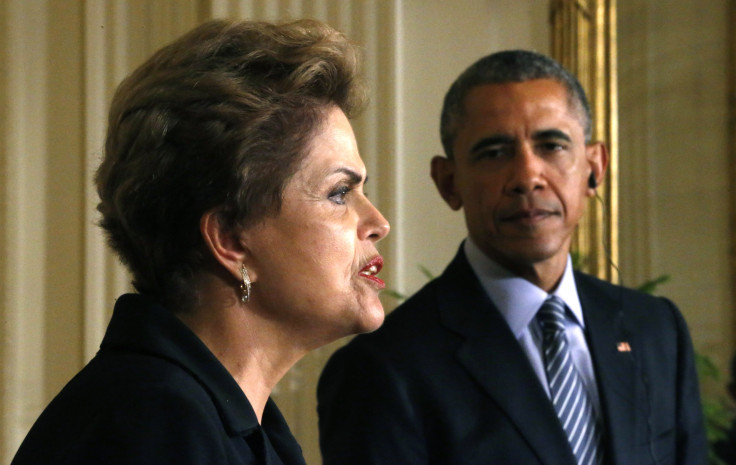
The Presidents of Brazil and the U.S. announced a joint effort on Tuesday to combat global climate change through a variety of strategies, including the increased use of renewable energy and a self-imposed caps on emissions. Both presidents promised to double or triple their current renewable energy production (excluding hydropower). Brazilian president Dilma Rousseff pledged to crack down on illegal logging, stop deforestation and restore 30 million acres of the Amazon, whose rainforest is a major sequester of carbon.
The U.S. calls the goals of both countries “ambitious,” stressing its own commitment to reduce emissions below 2005 levels by 26 to 28 percent. Obama’s ability to reduce emissions relies heavily on the Environmental Protection Agency which, despite a recent chastising by the Supreme Court over mercury regulation, says it’s fully able to roll out new climate rules. Brazil is expected to release its own specific climate plan later this year, ahead of the Paris climate negotiations in December. In addition to protecting forests and increasing renewable power, the country is likely to include targets for reducing emissions in its massive agriculture industry.
Some change activists were quick to point out that Rousseff and Obama’s proposals are not enough to prevent a significant rise in global temperatures, even if executed precisely.
“Stating that Brazil will ‘pursue’ policies aimed at eliminating illegal deforestation is nothing short of ridiculous. [...] This is an offense to common sense and to what Brazil has already shown it’s capable of on controlling deforestation”, said Carlos Rittl, Executive Secretary of Observatório do Clima, a Brazilian advocacy group. “We must recall that all other tropical countries have already committed themselves to zero deforestation by 2030”, he added.
Other climate advocacy groups called the Brazil and U.S. announcements positive “momentum” ahead of the December Paris talks. They hope for a more ambitious final plan from Brazil ahead of the talks. Furthering hopes of significant action on climate change, China also released plans to curb emissions, pledging to cap them by 2030.
In addition to climate change, Obama and Rousseff discussed security concerns over Iran’s nuclear program and the fallout from Greece’s financial crisis. It was the first official visit from Rousseff to the U.S. after she canceled a trip last year because of the NSA spying scandal.
"The change is particularly due to the fact that President Obama and the U.S. government have stated on several occasions that they would no longer engage in intrusive acts of spying on friendly countries,” Rousseff said in a press conference concluding her visit to the White House. “I believe President Obama. And furthermore, he told me that, you know, if he needed — should he ever need nonpublic information about Brazil, he would just pick up the phone and call me."
© 2025 Latin Times. All rights reserved. Do not reproduce without permission.




